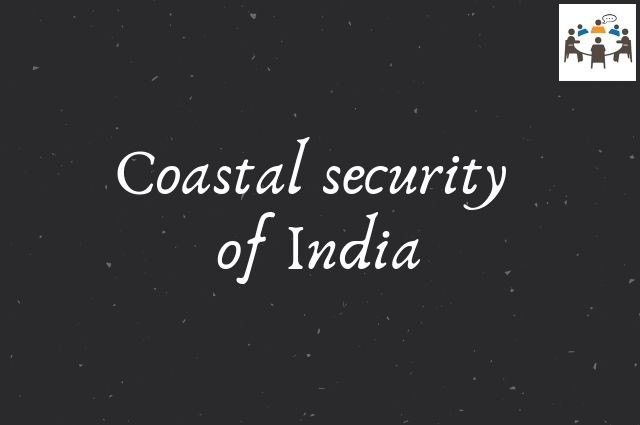The security of Indian coasts is shouldered by the ‘Indian Navy’ and the ‘Indian Coast Guard’. Very few states like Gujarat have their marine police too. The Home Ministry is pondering over the idea of setting up a ‘Central Marine Police Force‘ (CMPF).
Indian Navy: It has been a prominent force guarding the Indian waters even before the Independence. It has the central role in protecting Indian coastlines from any external threats. It has an aircraft carrier, destroyers, corvettes, frigates, submarines, helicopters and planes. It’s main functions are:
- Along with the other branches of the Armed Forces, act to deter or defeat any threats or aggression against the territory, people or maritime interests of India, both in war and peace.
- Project influence in India’s maritime area of interest, to further the nation’s political, economic and security objectives.
- In co-operation with the Indian Coast Guard, ensure order and stability in India’s maritime zones.
- Provide maritime assistance (including disaster relief, rescue operations) in India’s maritime neighbourhood.
Indian Coast Guard: In the early 1960s Indian economy was being threatened by illegal smuggling through sea routes. The Indian custom department frequently approached navy with these problems, asking for assistance with patrol and interceptions. In 1971 a committee identified a need for a separate body to carry out these functions, equipment and personnel required etc. And in 1973 Indian Navy was provided with extra equipment and was charged with the duty of anti-smuggling and law enforcement. But soon the Navy felt that it was diverging from its core missions as military service. And then, the Indian Coast Guard was formed in 1975. Its main duties are:
- Safety and protection of artificial islands and offshore terminals.
- Protection and assistance to fishermen at sea.
- Preservation and protection of marine ecology.
- Pollution Control.
- Assisting the department of customs in anti-smuggling operations.
- Law enforcement in water.
- Scientific data collection and support.
- National Defence during hostilities under the command of the Indian Navy.
- Overall coordination between central and state agencies in all matters relating to coastal security.
- Search and Rescue missions.
Central Marine Police Force: Home Ministry is planning to set up CMPF, to assist the ICG. The clear-cut roles have not been decided yet. A lot of planning needs to be done about their roles, jurisdictions, recruitment and training etc.
Other developments: After the 26/11 attacks, costal preparedness is better than earlier but the overall picture is not satisfactory. The conditions have definitely improved with greater fund allocations for coastal infrastructure, including police stations and radar stations along India’s coastline, improved ‘surveillance and domain awareness,’ through the installation of radar stations and identification systems, and the enhancement of coordination through Joint Operation Centres (JOCs).
One of the shortcomings is the indifference by the state-governments. The state-police seems to be reluctant to shoulder the responsibility. The marine police stations are very few in number, that too understaffed. Patrol boats are underutilized. Lack of infrastructure development and low fund allocations for the same.
The states need to participate actively in the coastal security as protecting the 7500 km of coastline is a tough task for any single organization.
Copyright @ Group Discussion Ideas.

